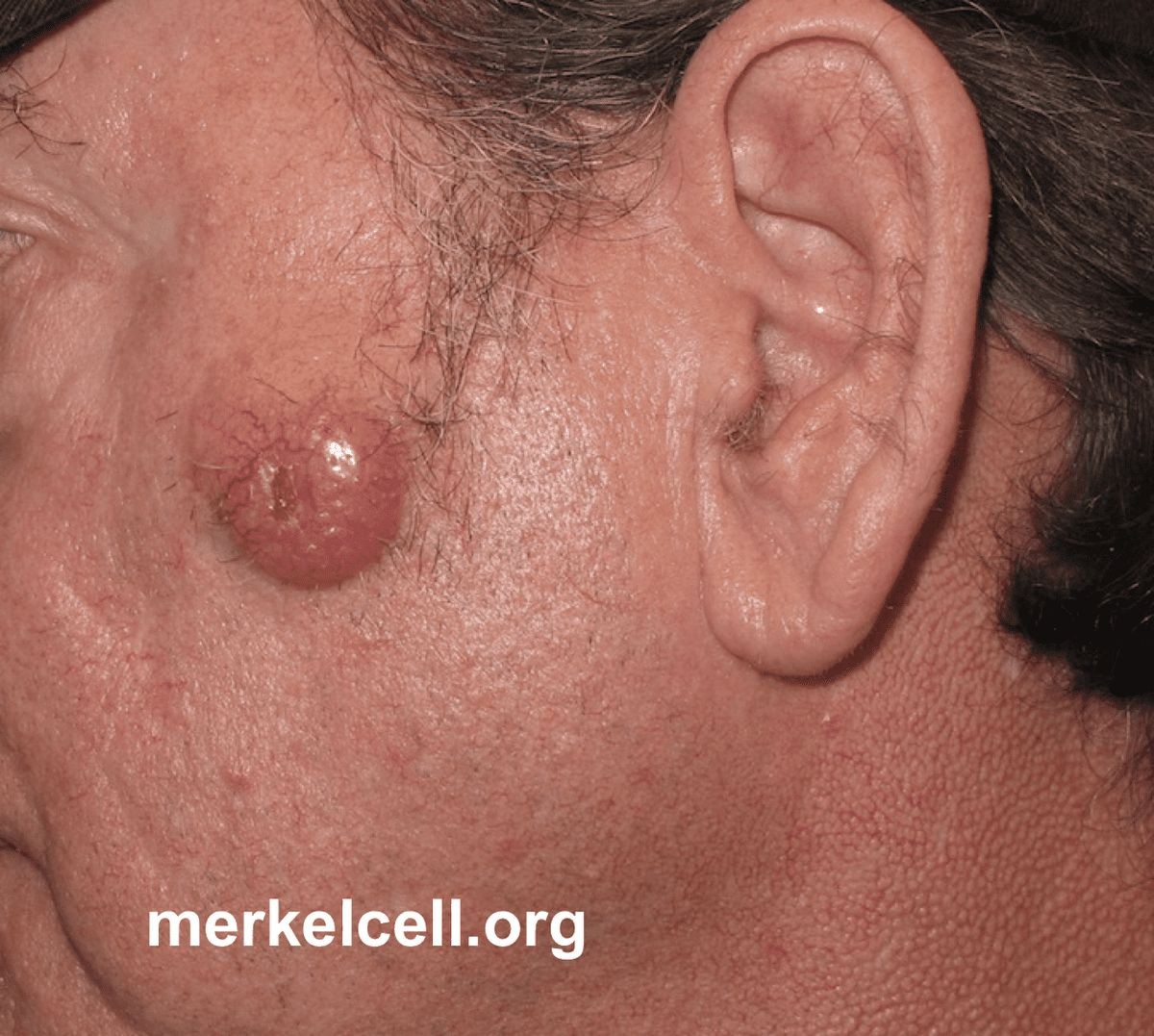
Contents
Survival Rate for Merkel Cell Carcinoma
Merkel cell carcinoma (MCC) is a rare and aggressive type of skin cancer. While the natural history of MCC is not fully understood due to limited cases, the five-year survival rate is estimated to be 64 percent.
There are different survival rates based on the stage of MCC:
- Local MCC, where the cancer has not spread beyond the skin’s surface, has a 5 and 10-year survival rate of over 70 percent.
- MCC that has spread to the lymph nodes has a 5-year survival rate of 54 percent and a 10-year survival rate of 48 percent.
- Distant metastatic MCC has a 10-year survival rate of 20 percent.
What is Merkel cell carcinoma?
Merkel cell carcinoma (MCC), also known as neuroendocrine carcinoma of the skin or trabecular cancer, is a rare and aggressive form of skin cancer caused by the rapid growth of Merkel cells. These cells are found in the top layer of the skin and are connected to the nerves responsible for touch sensations.
MCC often starts in areas exposed to the sun, such as the face, neck, and arms, but can occur anywhere on the body. It appears as hard, pink, red, or purple lumps or bumps on the skin.
MCC is the second most common cause of cancer-related death after melanoma.
What causes Merkel cell carcinoma?
The exact cause of Merkel cell carcinoma is unknown. However, there is evidence linking it to the Merkel cell polyomavirus, a common virus that resides on the skin. Other risk factors include excessive sun exposure, compromised immunity, and a family history of cancer.
Risk factors for MCC
- Excess exposure to natural and artificial sunlight.
- Compromised immunity due to conditions such as chronic lymphocytic leukemia or HIV infection.
- Taking immunosuppressant medications.
- Having a family history of cancer.
- Being older than 50 years.
- Being male.
- Having light skin tone.
How is Merkel cell carcinoma diagnosed?
A comprehensive examination of the body is conducted to assess general health and identify any unusual skin lesions or enlarged lymph nodes. A skin biopsy may be performed if cancer is suspected, and additional tests, such as sentinel lymph node biopsy or imaging studies, are used to determine the cancer’s extent.
What are the stages of Merkel cell carcinoma?
Merkel cell carcinoma is staged using the American Joint Committee on Cancer TNM system, which categorizes the cancer based on its size and spread. The stages include:
- Stage 0: The malignancy is contained within the tumor and has not spread beyond it.
- Stage I: The tumor is small and has not spread to the lymph nodes or other organs.
- Stage II: The tumor has grown larger or spread to nearby lymph nodes or tissue.
- Stage III: The tumor has deeply invaded surrounding lymph nodes or tissue.
- Stage IV: The tumor has spread to distant lymph nodes or other body parts.
How is Merkel cell carcinoma treated?
The treatment approach for Merkel cell carcinoma depends on the stage of cancer. Surgery is usually the mainstay of treatment, with additional therapies such as radiation, immunotherapy, or chemotherapy used in certain cases. Participation in clinical trials is encouraged to advance the understanding of MCC and improve treatment outcomes.
- Surgery: The removal of the tumor and surrounding skin is the standard approach for early MCC. Lymph node removal may also be performed.
- Radiation therapy: Used for stages 0 to III MCC or when surgery is not feasible.
- Immunotherapy: Drugs that target and destroy cancer cells, with promising results for advanced MCC.
- Chemotherapy: Rarely used as palliative treatment to alleviate symptoms.


